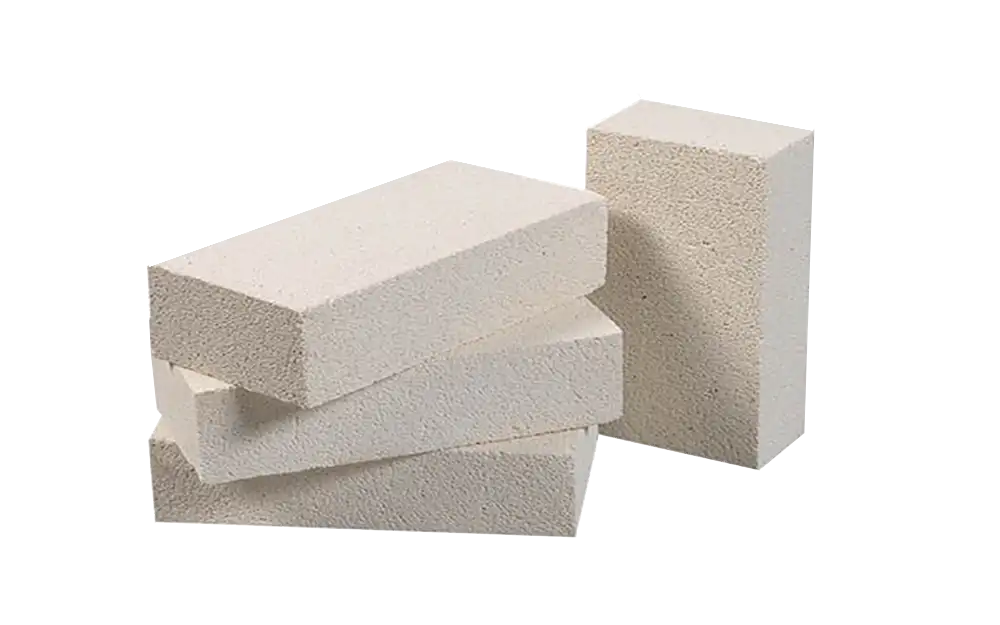Heavy-duty bricks, also known as alumina bricks, are a type of refractory brick widely used in various industries due to their exceptional ability to withstand extreme temperatures and prolonged exposure to direct flame. These bricks are characterized by their high density and alumina-based raw materials, resulting in superior strength and durability.
Key characteristics of heavy-duty bricks

High Heat Resistance
Heavy-duty bricks can withstand temperatures of up to 1650°C (3002°F) or higher without deformation or crumbling. This characteristic makes them ideal for use in furnaces and other industrial installations that are subjected to intense heat.
Thermal Insulation
Due to their porous structure, heavy-duty bricks have low thermal conductivity, preventing heat loss to the exterior. This leads to increased furnace thermal efficiency and reduced energy consumption.
Corrosion Resistance
Heavy-duty bricks are resistant to corrosive chemicals and acids. This attribute makes them suitable for use in industrial environments that deal with harsh chemicals.
High Strength
This type of brick, due to its high density, possesses exceptional strength and compressive resistance. Consequently, they can be employed in heavy-duty and high-pressure structures.
Long Lifespan
Heavy-duty bricks have a long lifespan owing to their high resistance to heat and corrosion. This, in turn, significantly reduces maintenance and repair costs.
Applications of Heavy-duty Bricks
- Furnaces: Heavy-duty brick are widely used in various furnaces, including metal melting furnaces, glass furnaces, cement kilns, coke ovens, and more.
- Steel Industry: They are employed for lining the inner walls of blast furnaces in iron smelting.
- Oil and Gas Industry: Heavy-duty brick find applications in refineries, foundries, and other oil and gas industry installations.
- Construction Materials Industry: This type of brick can be used for building fireplaces, barbecues, and other heat-resistant structures.
Advantages of Using Heavy-duty Bricks
- Enhanced Thermal Efficiency: Due to their insulating properties, heavy-duty bricks minimize heat loss, leading to increased thermal efficiency.
- Reduced Costs: The long lifespan of these bricks significantly lowers replacement and maintenance expenses.
- Improved Safety: High resistance to heat and corrosion enhances workplace safety in industrial settings.
- Environmental Friendliness: Heavy-duty bricks are manufactured from natural and recyclable raw materials, contributing to environmental sustainability.
Key Selection Factors
- Heat Resistance: Choose bricks with appropriate heat resistance based on the furnace or structure’s operating temperature.
- Thermal Insulation: Opt for bricks with low thermal conductivity to prevent heat loss.
- Corrosion Resistance: Select bricks with suitable corrosion resistance based on the chemicals they will encounter.
- Strength: Choose bricks with adequate strength and compressive resistance for the intended application.
Selecting the Right Brick for Each Application
The selection of the appropriate brick for a specific application depends on various factors, including:
- The intended use: Different types of heavy-duty bricks are suitable for various applications, such as furnace linings, incinerators, and power plants.
- The operating conditions: The bricks’ heat resistance, corrosion resistance, and thermal insulation properties must match the specific conditions of the application.
- The desired lifespan: The expected lifespan of the bricks should align with the project’s requirements and budget.
- Cost considerations: The price of different types of heavy-duty bricks can vary significantly, so it’s crucial to balance cost with performance and durability.


Leave a Reply